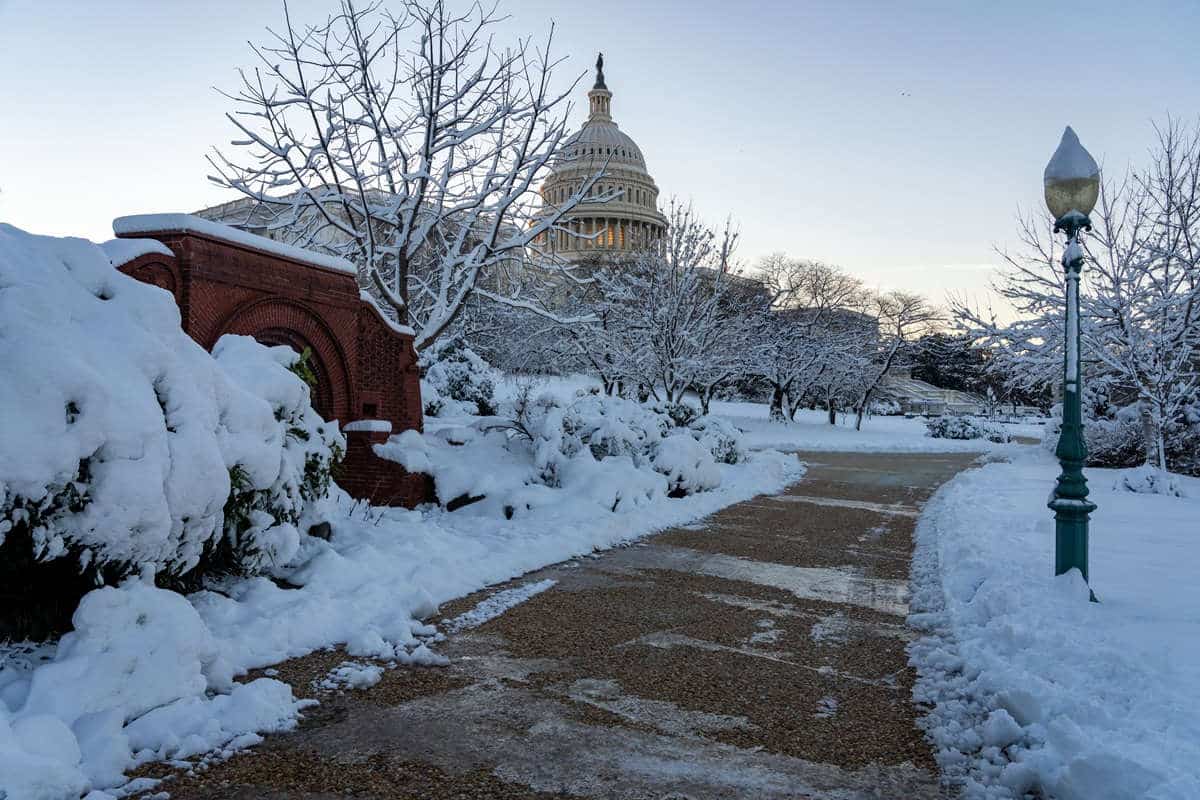U.S. House Bill Would Cut $1.7 Billion in Water Funding

The National Utility Contractors Association (NUCA) once again expresses strong concern and opposition to the U.S. House’s FY2024 Interior-Environment appropriations bill which, as currently written, will collapse clean water programs for millions of American citizens.
Incredibly, the U.S. House stripped out $1.7 billion in critical resources needed to sustain water and wastewater infrastructure repairs and construction in the 2024 Department of the Interior, Environment, and Related Agencies Appropriations Act (HR 4821). The bill was approved Nov. 3 by a vote of 213-203.
Nearly half of the FY2024 reductions to the Environmental Protection Agency (EPA) are from these two critical construction funds, wreaking havoc to infrastructure repairs across the nation for the sake of a political talking point.
Well-functioning water infrastructure systems are indispensable to maintaining the health of our nation’s citizens. As water and wastewater systems continue to age and the costs of compliance with environmental requirements mount, states and local communities face increasing difficulties in paying for their needed infrastructure improvements.
Congress established dedicated resources through the Clean Water Act and the Safe Drinking Water Act in 1987 and 1996, respectively, to fund the Clean Water State Resource Fund (SRF) and the Drinking Water SRF. These funds provide capital to revolving loan funds, which states and territories use to make subsidized loans for water and wastewater infrastructure projects.
Since their establishment, these low-interest loans have saved communities billions of dollars in water infrastructure. These loans provide a recurring source of funding to meet the perpetual requirement for sustained investment in these community water and sewer systems. The SRF programs have been tremendously successful, but have always been held back by a lack of annual funding needed to keep up with growing nationwide needs.
The 2021 Infrastructure Investment and Jobs Act (IIJA), also known as the Bipartisan Infrastructure Law, allocated $23 billion over the next four years to both the Drinking Water SRF and Clean Water SRF, each administered by the Environmental Protection Agency, with funding set asides for lead service line replacement and grants to certain small and/or disadvantaged communities. IIJA represented the first step in correcting a long decline in federal support for American water infrastructure, which by 2017 had fallen to less than 10% of capital spending in the water sector.
Both of these programs were supposed to be expanded to $3 billion each under the 2021 infrastructure law, but are relying on annual appropriations to help meet what is still a huge funding gap. However, in FY22 and FY23 Congress did not appropriate funds at the levels authorized for infrastructure spending in IIJA (only 59.6% in FY23) and is reducing the positive impact sought by Congress with the 2021 law.
In July 2023, instead of trying to fix our nation’s water infrastructure crisis, the House Appropriation Committee’s Republicans catastrophically cut SRF funding by two-thirds–effectively zeroing out the House’s support for one of our nation’s most effective infrastructure programs. Other IIJA water programs went without funding entirely.
Around half of the proposed EPA cuts come at the expense of water funding, and much of what is left is distributed as grants through earmarks – essentially zeroing out SRF funding for FY2024. This bill, if signed into law in its current form, will effectively cancel out the benefits of IIJA funding for water infrastructure. Some states have already expressed concerns that if these cuts are signed into law, their SRF programs could run out of funding to issue new loans within a few years – even with the remaining annual supplementary funding from IIJA.
Since 2022, Congress has cut $2.3 billion or 42% in annual federal funding for state SRF projects to pay for Congressional earmarks. $800 million in individual lawmaker earmarks are funded in the House FY2024 Interior-EPA bill, but those only help specific projects as grants, not loans.
Grants do not return (as loans do) resources to the SRF resource pool that helps meet future statewide resource needs. States repay these loans, which are then recycled back as repaid capital. Earmarks do not repay these funding resources, and ultimately impose millions in additional costs on states. While many of these projects are no doubt vitally important to their communities, funding them from a diminished SRF instead of as an additional appropriation directly harms others in need.
Lawmakers and their staff should recognize that earmarks are unfairly cutting into the resources that could have been made available for less-fortunate communities and states, especially for lead pipe mitigation. And some states will suffer more than others, as earmark distribution does not reflect federal funding formulas.
Political grandstanding must not severely reduce the resources needed to repair an estimated $625 billion of obsolete or deficient U.S. water infrastructure systems. These systems deliver the basic government service of providing clean, reliable drinking water to millions of Americans each day. These water infrastructure projects always lead to increased economic development and better job opportunities for all citizens. Paradoxically, the House’s cuts are likely to increase the nation’s deficit, especially as more and more water systems reach their breaking point and are forced to make more costly emergency repairs simply to function. NUCA strongly urges the U.S. House and Senate to fully restore to its final FY2024 appropriations legislation at least the $2.1 billion sought by the 2021 Infrastructure law for these two critical state resource funds.
About The National Utility Contractors Association (NUCA)
Founded in 1964, the National Utility Contractors Association represents almost 2,000 U.S. utility and excavation contractors, manufacturers, and supplier businesses who provide the materials and workforce to build and maintain our nation’s intricate network of water, sewer, gas, telecommunications, and electric infrastructure. NUCA is found online at www.nuca.com, and can be followed on Twitter at @NUCA_National. The association’s Twitter hashtags are #WeDigAmerica and #NUCAdigs.




